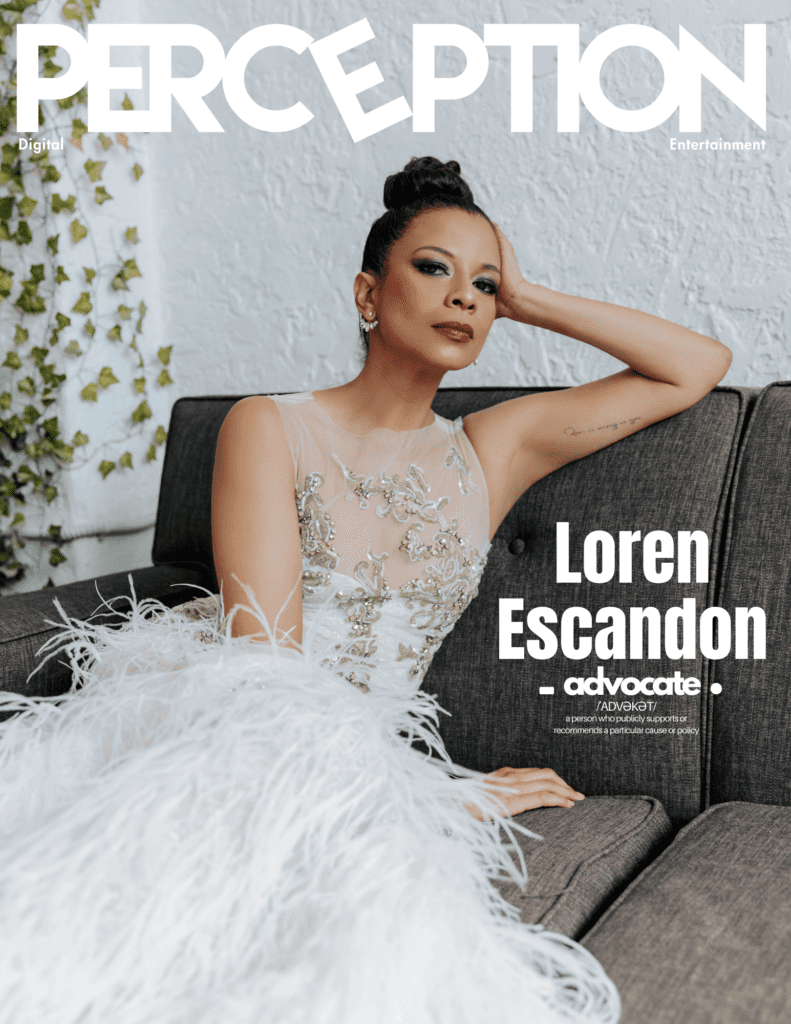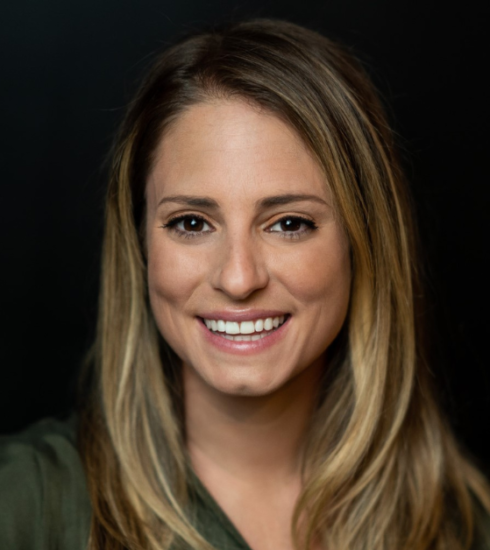Loren Escandon – The Advocate & Filmmaker
I’ve had the pleasure of speaking with activist, actress, director, and producer Loren Escandon for the second time. She is an award-winning and proud Afro-Colombian who uses her pen, vision, and voice to convey the tales of the numerous communities that make up her background and culture, amplifying their voices across multiple platforms and genres.
Loren saw the writer and actor strike that shook the whole entertainment industry as a perfect opportunity for Latinos in the industry to finally gather together, let their views be heard, and not go unnoticed behind and in front of the camera. “It’s strange how you bond when things don’t go your way. You find that commonality,” Escandon remarked as we began our discussion about the history and significance of Latinas Acting Up.
Latinas Acting Up is an organization born during the strike under the guidance of Diana Maria Riva and Lisa Vidal. The organization gathers resources and tools to help the Latino community in the industry while supporting other organizations with similar goals in other professions. “We collaborate with each other,” Loren explained. “We pool our abilities and strengths to help each other grow.” Loren stated that by uniting their voices, they discovered “resilience.”

“Now is a vital moment for us Latinos to actually increase our visibility,” she said. It made her so happy that “in every meeting seeing the ocean of different flags representing with pride our culture, our country” became a collective aim.
Visibility, according to her, is more than just showing a group of Latinos, but also demonstrating how diverse and non-monolithic they are as a culture and people.
On the subject of diversity and the fact human beings are not homogeneous, she also argues for more diversity in terms of Latino representation in Hollywood storylines and the people represented. “They have no actual knowledge of who we are, our culture, our beliefs, or the circumstances in which we live,” she said. Whereas Hollywood glamorizes drug cartels, conflict, and very specialized Latino cultural references in movies and television, Loren encourages the industry to recognize that there are more enriching and beautiful storylines to explore.
Loren was born and raised in Colombia and seen firsthand what Hollywood writers think makes fascinating narrative and engaging pictures. She opened up about how, as a child, her mother forced her to stay home from school due to a bombing on one of the buses. “See, for some of us, that’s the reality. There’s nothing glamorous about that,” Escandon said. She goes on to state that she believes it is difficult for the entertainment industry to have a true handle on who they are because there aren’t individuals at the highest level and in positions of power who have an authoritative voice on what legitimate representation is for Latinos and their experiences.

“How do we create a path in television and film that is sustainable for our stories?” Loren said. “What do we do?” She addresses this question to the industry and her community. She is someone who has taken matters into her own hands and generated independent films to become an industry champion. However, she stated that even those efforts are insufficient. Independent and mainstream television must work together to make a difference.
“We Latinos aspire to do and be more. The key is finding a place in the industry where our aspirations are welcomed and supported,” Escandon remarked.
Inspired to do and be more, she and a group of incredible women created the independent film Give Me an A. Give Me an A is a film with 16 individual stories created by 16 female filmmakers. The film is an anthology that mixes horror, science fiction, and dark comedy to investigate bodily autonomy and human rights in a post-Roe future.
Loren stated, “It was a very particular situation” when it came to making the picture. She and several other women in the industry were on a Zoom call after Roe v. Wade was reversed. She described it as quite emotional, with them expressing their outrage, anguish, and despair about what was happening to women in the country. They were poised at the end of the call, wondering, “What are we going to do?”
They knew that making a film was the greatest way to offer those who couldn’t speak up a voice and educate those who didn’t comprehend the harmful impact. “We really needed to have a voice in this situation,” Escandon said. They used comedy and satire to lighten the mood of a serious subject. She added, “We brought these different elements together for the film because, when you think about it, telling women what to do with their bodies is ridiculous.”
She added that everyone works “pro bono because of the cause.” And this picture stars a number of well-known and renowned actresses, including Alyssa Milano, Virginia Madsen, and Gina Torres, to mention a few. They were all aware that it was more vital for them to spread this message to the globe than to “make a dime” off of it.
Loren wasn’t simply investing her time and vision working on this project; she was also working on her project Casa Grande at the same time. It just goes to demonstrate how important it is to her to provide individuals with a platform to magnify their voices, which echoes her profession. She will not give up because she understands that the work is never finished, and that it is truly only the beginning for Latino representation to be seen and heard on their terms






